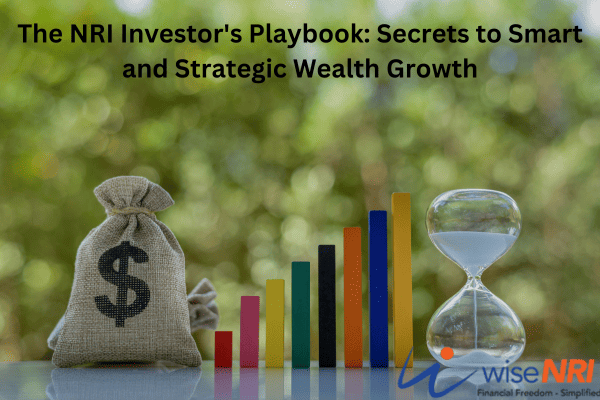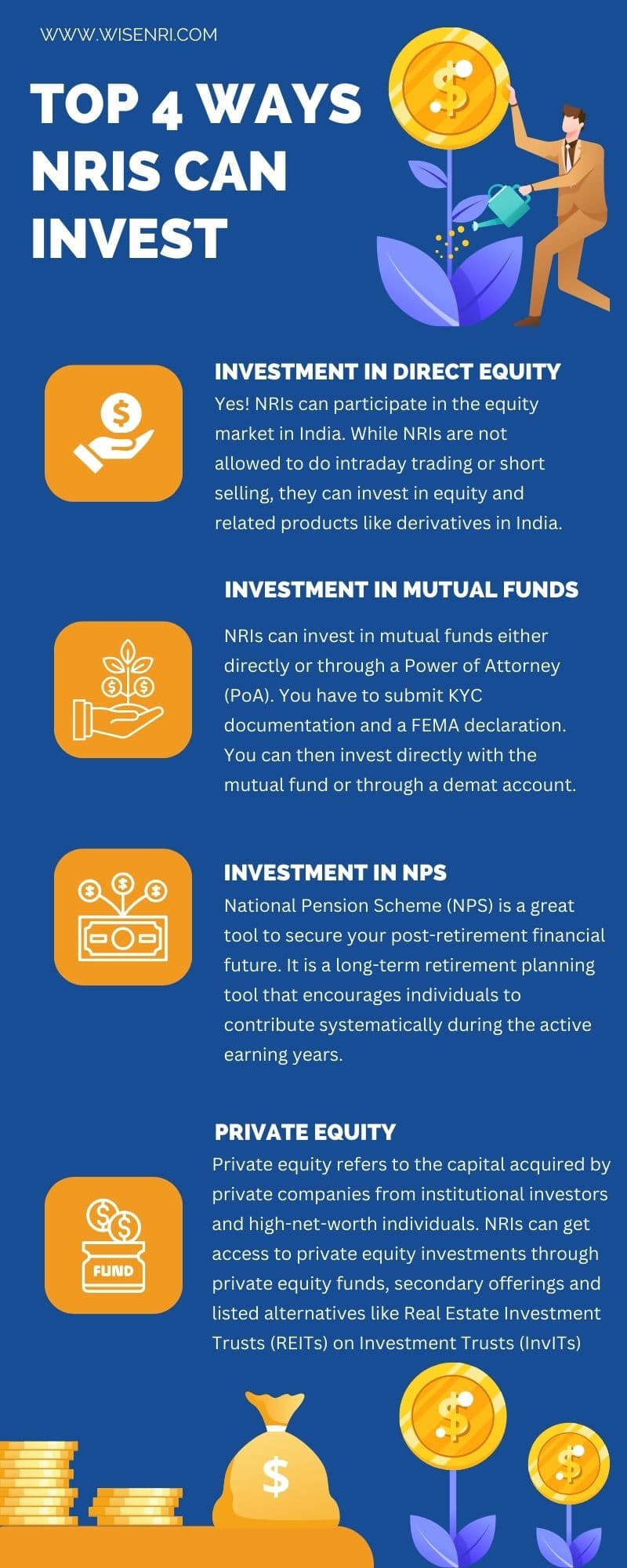As an NRI, you might be working abroad or running a business. It is a pretty reliable way to earn money and gradually increase your wealth over time. However, it might be a good idea to look at other reasonably safe ways that will help to grow your wealth quicker. You can be better positioned to meet your financial goals and have some sort of cushion against negative effects of evolving economic and geo-political conditions that can affect your job, profession, or business.

Must Check – NRI Investment Options in India
Investing in India
| ● In January 2024, India overtook Hong Kong to claim the fourth position in the global equity market rankings by market capitalization
● India’s GDP growth rate was over 7 percent in 2023 ● A 2024 Finance Ministry report expects India’s FY25 GDP growth to be around 7 percent. |
With robust domestic demand, strong public infrastructure investment, and a strengthening financial sector, the Indian economy is not only resilient but also growing. India also offers a spectrum of investment avenues across various sectors. As an NRI, diversifying investments in India should be part of your investor playbook. You can consider participating in India’s growth story to
- Invest strategically in opportunities that align with India’s growth trajectory to enhance wealth potential
- Reduce portfolio risk by diversifying investments in India
Investment in Direct Equity
Yes! NRIs can participate in the equity market in India. While NRIs are not allowed to do intraday trading or short selling, they can invest in equity and related products like derivatives in India. Equity investments are a powerful tool to generate returns and provide capital appreciation. Their performance is also related to the economic progression of India. Here is how you can start your investment journey in India:
- Establish an NRO or NRE account with a credible Indian financial institution.
- Open a Portfolio Investment Scheme (PIS) account with the same
- Initiate a demat account to hold shares and a trading account with a brokerage to engage in the buying and selling of shares.
It is important to make informed decisions when venturing into equity markets as there is risk and unpredictability involved.

Must Read – Monthly Investment Options for NRI
Investment in Mutual funds (MF)
Investing in direct equity entails greater risk. Many are uncomfortable investing in direct equity. A smarter way to participate in the India growth story is to invest in mutual funds. Mutual fund schemes are managed by professional investment managers. Moreover with a larger corpus, the scheme can invest in numerous securities based on its investment objective, resulting in reduced risks.
NRIs can invest in mutual funds either directly or through a Power of Attorney (PoA). You have to submit KYC documentation and a FEMA declaration. You can then invest directly with the mutual fund or through a demat account.
It is a smart strategy to invest in mutual funds as
- They are managed by professional money managers who have the expertise, experience and resources to actively buy, sell, and monitor investments.
- You can easily redeem units of open ended mutual fund schemes to meet your financial needs on any business day.
- Mutual Funds are regulated by the capital markets regulator, Securities and Exchange Board of India (SEBI) and have to follow rules and regulations related transparency, investor protection and risk mitigation.
You can also use the SIP (Systematic Investment Plan) feature to invest. Instead of investing a large sum of money all at once, you invest small amounts regularly. You do not have to worry about timing the market and build discipline in your investment approach. You can also choose the amount you want to invest, the frequency of investment, and the duration of the investment.
Investment in NPS
National Pension Scheme (NPS) is a great tool to secure your post-retirement financial future. It is a long-term retirement planning tool that encourages individuals to contribute systematically during the active earning years.
NPS offers asset allocation, based on individual risk tolerance and investment preference. You can select between equities, corporate bonds, government securities, and alternative assets, allowing them to tailor their investment strategy. With professional managers handling the corpus, potential of inflation beating returns due to participation in equity and tax benefits, it is an effective investment avenue. Contributions earn returns without any tax implications and withdrawal (up to 60%) is tax-exempt. Moreover, the procedure and documentation required for investment is straight forward.

Must Read – NPS For NRI
Private Equity
Private equity refers to the capital acquired by private companies from institutional investors and high-net-worth individuals. NRIs can get access to private equity investments through private equity funds, secondary offerings, and alternate investment funds (AIFs).
It involves challenges like long lock-in periods, limited information and high risk. NRIs can consider this investment avenue for capital growth by diversifying investments across funds, choosing private equity firms with a proven track record and strong investment expertise, and understanding the terms and conditions thoroughly.
Get your finances on track
The difference between commitment and mere desire is an all-important one that you can start to distinguish right here and now.
Financial success depends a lot on your habits and actions. To build wealth and get on track to living a more financially free lifestyle., you have to take actionable steps and be committed to them. They include:
- Ensure that you have a regular income source. To grow your wealth, you need to invest. Investing requires saving money, and you can’t save money without a regular income.
- Create a budget and follow it. A budget will help you identify unnecessary expenses and you can increase the allocation of your income to savings and investments.
- Be disciplined in saving and investing
- Improve your skill sets to develop your career and get better professional opportunities which can lead to higher income leading to the potential of more investment and more returns and capital appreciation
A wealth-building strategy requires a strong financial base, time and effort to understand the rewards and risks of various investment avenues and a strong commitment to the goal by taking actionable steps. You can also take advantage of expert advice for building wealth.
